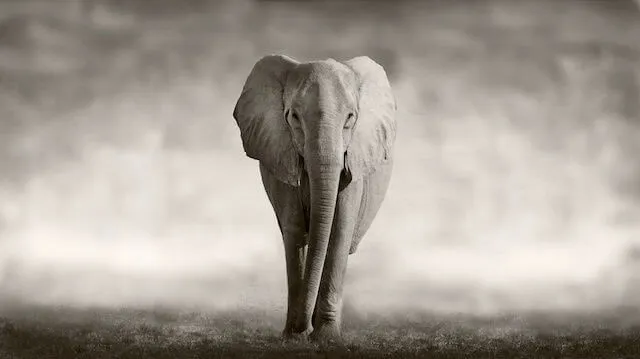
- Share on Facebook33
- Share on Pinterest
- Share on Twitter
Elephants are one of the largest animals walking the earth today, with over 100 times more cells than humans, and they rarely get cancer. Cancer is the second leading cause of death among U.S. adults with an estimated nearly 600,000 deaths in 2015, according to the American Cancer Society. Therefore, researchers are turning to elephants’ cancer resistance for answers behind the deadly disease.
A study published in October of this year in The Journal of the American Medical Association (JAMA) examines elephants for possible cancer prevention and resistance. Previous studies have noted the specific molecular mechanisms in elephants that keep them cancer-free. However, the mechanisms of such cancer resistance is not clear, according to Dr. Joshua Schiffman, the new study’s lead researcher at the University of Utah School of Medicine.
Past theories have suggested that the larger the animal, the more at risk they are for developing cancer, but elephants, unlike humans, continue to have a lower risk. Dr. Schiffman and colleagues took a closer look at the cancer-resistant mechanisms in elephants in their latest research. They looked at several species and assessed their genomes and white blood cell (peripheral blood lymphocytes) activity.
The study found that the cancer mortality rates in mammals were not affected by size or longevity. Elephants have a 4.8 percent cancer mortality rate in comparison with humans, who have an 11 to 25 percent rate. Their research also uncovered that elephants possess 20 or so copies of TP53, a significant tumor-suppressing gene. The TP53 gene is a vital factor in response to DNA damage in elephants, which triggers cell death (apoptosis) through the p53 protein. This data leads the researchers to understand why elephants have a higher resistance to cancer.
 The study states, “Compared with other mammalian species, elephants appeared to have a lower-than-expected rate of cancer, potentially related to multiple copies of TP53. Compared with human cells, elephant cells demonstrated increased apoptotic response following DNA damage. These findings, if replicated, could represent an evolutionary-based approach for understanding mechanisms related to cancer suppression.”
The study states, “Compared with other mammalian species, elephants appeared to have a lower-than-expected rate of cancer, potentially related to multiple copies of TP53. Compared with human cells, elephant cells demonstrated increased apoptotic response following DNA damage. These findings, if replicated, could represent an evolutionary-based approach for understanding mechanisms related to cancer suppression.”
This is great news for elephants, but why are humans, who are much smaller and live far less, still so susceptible to cancer development? Many signs point to the breakdown in DNA repair and genome protection. Unlike humans, elephants boast more DNA protection.
A study published in the Journal of the National Cancer Institute (2000) points out the possible link between DNA damage, lack of genome protection and cancer. The study states, “DNA repair is a system of defenses designed to protect the integrity of the genome. Deficiencies in this system likely lead to the development of cancer.”
Is it possible that examining the TP53 gene will further assist cancer researchers in the never-ending battle against cancer? Possibly, but this research may take a while to develop. The good news is that there are plenty of excellent and essential alternative ways that might significantly lower your risk of developing cancer.
Studies have shown that diet and healthy lifestyle choices are key factors in your personal fight for preventing cancer. The American Cancer Society recommends that you eat more whole fruit, fresh vegetables and legumes, and curb food and beverages loaded with fat, sugar and calories. Another recent study published in JAMA Internal Medicine (2015) found that switching to a Mediterranean diet may decrease your relative risk of breast cancer by 68 percent. The Mediterranean diet is aligned with the American Cancer Association’s diet recommendations, including consumption of more plant-based food and whole fruit.
While we wait for new cancer prevention research to arise, what will you do to lower your risk?
—Stephen Seifert
Stephen Seifert is a writer, professor, adventurer and a health & fitness guru. His flair for travel and outdoor adventure allows him to enjoy culture and traditions different than his own. A healthy diet, routine fitness and constant mental development is the cornerstone to Stephen’s life.
Sources:
http://jama.jamanetwork.com/article.aspx?articleid=2456041
http://www.cancer.org/research/cancerfactsstatistics/cancerfactsfigures2015
http://jnci.oxfordjournals.org/content/92/11/874.short
https://graduateway.com/blog/diet-and-physical-activity-whats-the-cancer-connection/
http://archinte.jamanetwork.com/article.aspx?articleid=2434738&resultClick
- Share on Facebook33
- Share on Pinterest
- Share on Twitter

